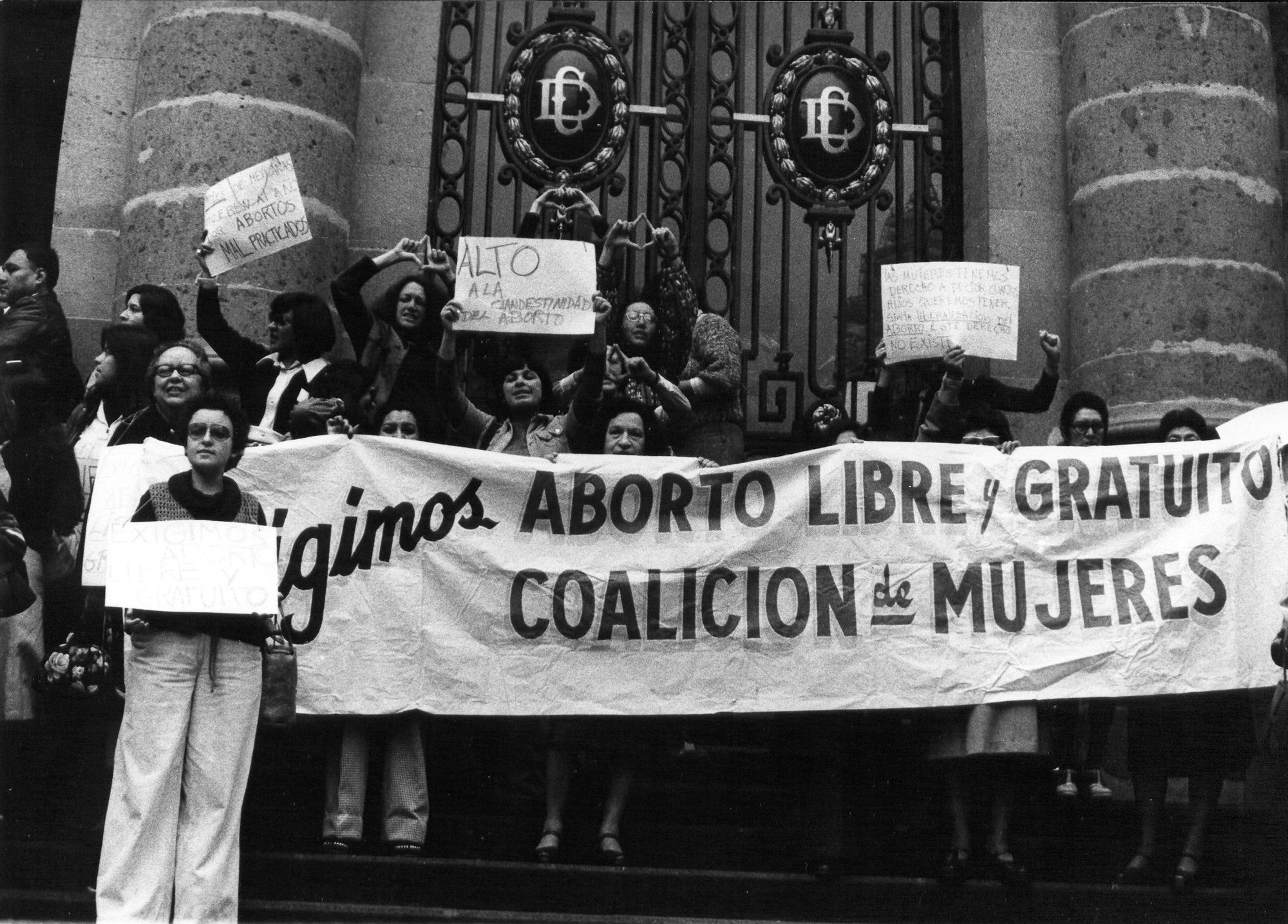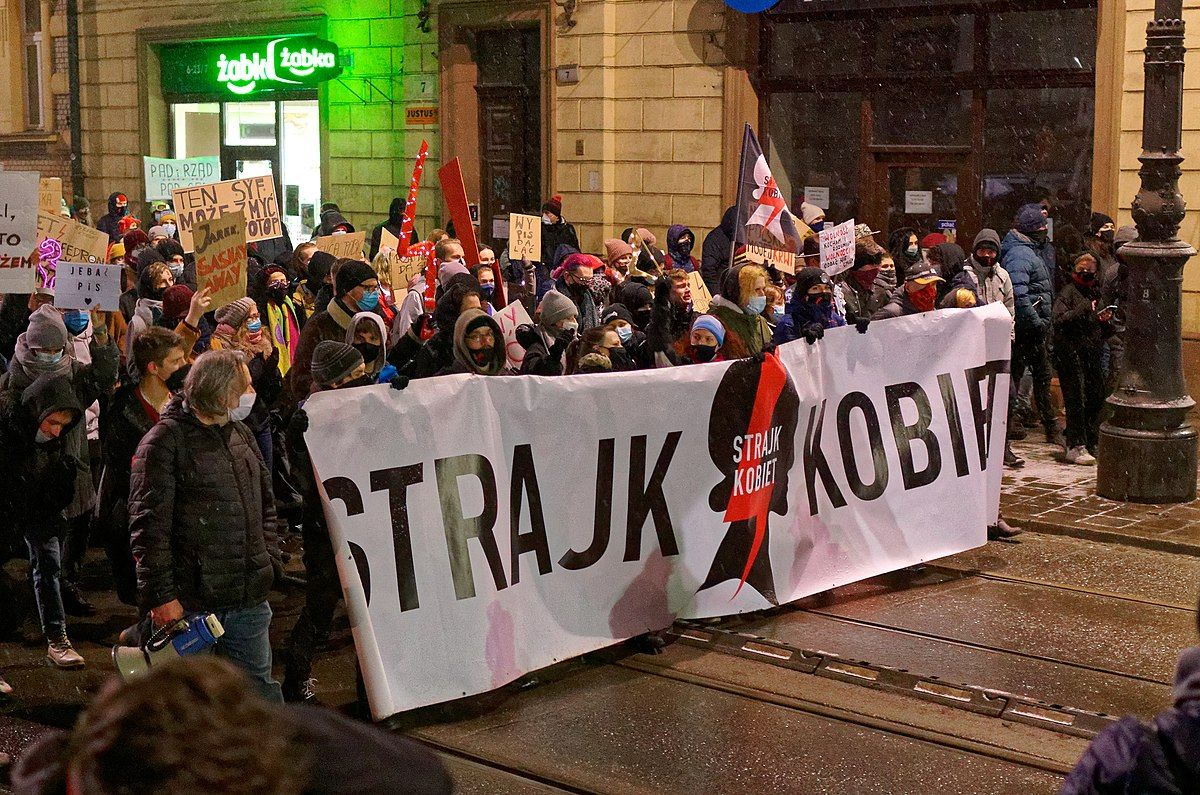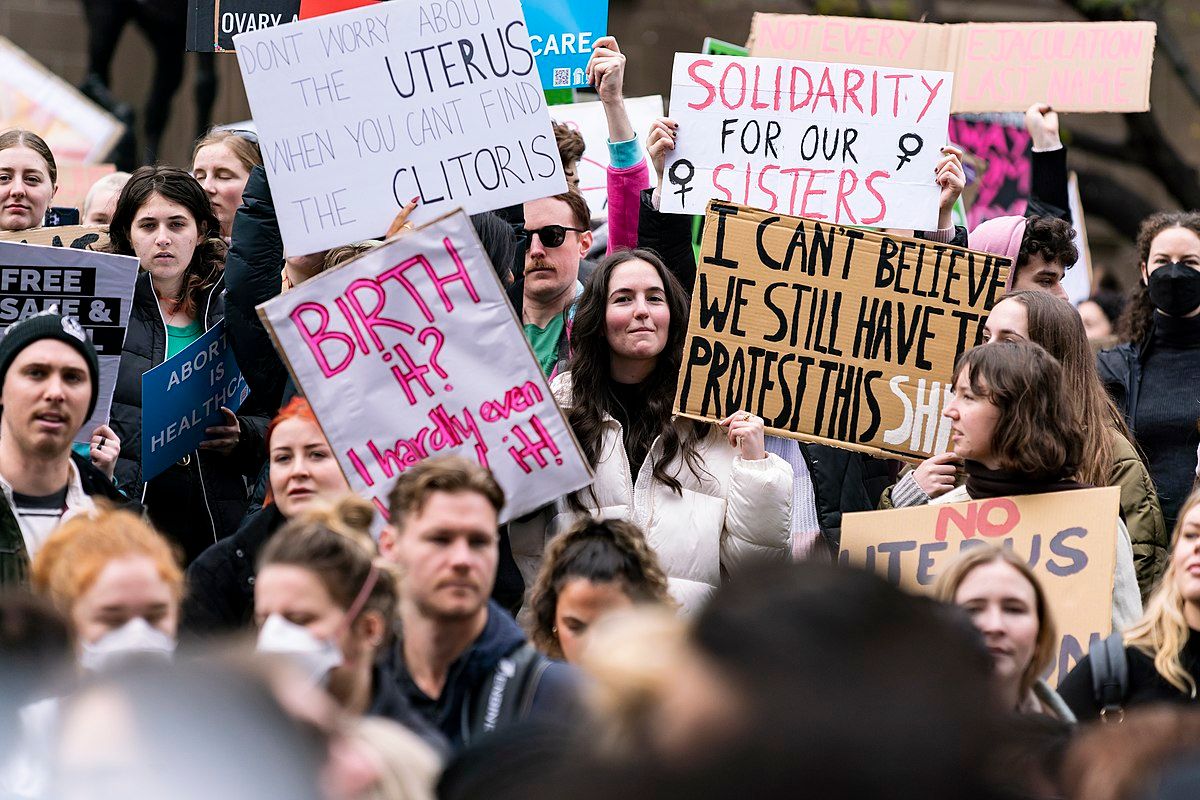‘A woman's development, her freedom, her independence … refusing the right to anyone over her body; by refusing to bear children, unless she wants them; by refusing to be a servant to God, the State, society, the husband, the family, etc, by making her life simpler, but deeper and richer. That is, by trying to learn the meaning and substance of life in all its complexities, by freeing herself from the fear of public opinion and public condemnation.
Only that, and not the ballot, will set woman free, will make her a force hitherto unknown in the world, a force for real love, for peace, for harmony; a force of divine fire, of life-giving; a creator of free men and women.' ~ Emma Goldman, Anarchism and Other Essays, 1911
Anti-abortion arguments are full of slippery slope rhetoric about when an entity has a right to life. In her 1971 thought experiment, which would go on to inform Roe v. Wade, philosopher Judith Jarvis Thompson reframed the question. She asked that we imagine a famous concert violinist has been hooked up to our circulatory system whilst we sleep. The violinist needs to use our circulatory system for nine months for their life support or they will die. She asks what we would think of this violinist kidnapping our body to keep themselves alive.
Thompson demonstrates that there is no place on that ‘right to life’ slippery slope where it is morally acceptable to surrender control over our own bodies, not even to save a wonderful musician. Bodily autonomy supersedes rights of foetuses or even full-grown adults. Yet as novelist Sally Rooney, commenting in 2018 on the abortion ban in Ireland, stated:
‘Consent, in the form of a donor card, is required even to remove organs from a dead body... In the relationship between foetus and woman, the woman is granted fewer rights than a corpse.’
With this, Rooney shows how often women’s autonomy is stripped without consent. As anarchists, we agree that there can be no point when the State or government should control what we do with our bodies. Thus any law or decision overriding any person’s bodily autonomy is tyranny and must be named as such.

The US State in particular has a long history of abusing people’s bodily autonomy. From enforced sterilisation of Black and Indigenous women, prisoners, and disabled women; to making abortion unavailable through basic health insurance for poor and dispossessed people; to hinging foreign aid on not supporting abortions for people in the Global South; to prosecuting trans people and their families for choosing to support transition, the US government has acted on the urge to control the bodies of everyone who isn’t a white able-bodied cis man. And now, as of June 2022, Roe v. Wade has been overturned, undermining access to reproductive care all over the country.
The overturning of Roe v. Wade is a vicious attack on women and people who can give birth. It is, plainly, an expression of deep rooted misogyny. Controlling women’s bodies by denying their liberation and reproductive freedom also obviates their dignity and equality with men. And perhaps more significantly, anti-abortion laws lead to the physical and emotional harm of women, people who can give birth, and children, sometimes to the point of death. This frequently manifests through the so-called judicial system; earlier this year, before Roe was even overturned, Chelsea Becker was charged with murder in California after a stillbirth at eight months. In the wake of the SCOTUS ruling, cases have emerged of rape victims unable to access chemotherapy, a ten-year-old rape victim being denied an abortion, and another woman nearly dying after being refused abortion care. As if to emphasise that these laws are about control more than anything else, we have also seen women targeted under anti-abortion legislation when they’re not even pregnant.
As frequently as cis women take centre stage in the news, it is also important that we do not erase the impact of abortion laws on trans men, non-binary people, and other nonconforming individuals. In the US in 2017:
‘GLAAD estimated that as many as 12 percent of 18- to 34-year-olds are not cisgender meaning they do not identify with the sex they were assigned at birth. It’s hard to glean from these data exactly how many of these transgender, genderqueer, nonbinary, agender, and other gender nonconforming people are capable of getting pregnant and are therefore affected by abortion laws like the new Texas one, but other data suggest that it is roughly half.’
This trend extends internationally, as well. We have seen that trans men in Colombia are at high risk of getting raped but cannot access abortions, since ‘the legislation governing abortion explicitly mentions women, leaving out people with other gender identities who are able to get pregnant.’ Thus, whether it’s in America or abroad, trans lives are threatened directly by anti-abortion legislation, emphasising the need for solidarity between cis, trans, and other gender identities when it comes to reproductive justice.
It is also no coincidence that attacks on trans lives spiked alongside abortion restrictions. Anti-trans legislation and stochastic terrorism are tied directly to the assault on reproductive healthcare. Therefore, when bigoted cis women and hate groups like LGB Alliance attack trans people, they are doing so at the expense of the autonomy of their own supposed constituents.
Similarly, the primacy of white women in the conversation about abortion elides the unique vulnerability of Black women and other women of colour whose access to care is impacted by a combination of misogyny and systemic racism. White women who ignore these realities do so at the behest of white supremacy. We, and anarchists in particular, must push back against these narratives which centre the privileged and instead support relationships of understanding and solidarity across affected groups. It is self-evident that an injury to one is an injury to all, and, as Emma Goldman once said, ‘As an anarchist, my place has ever been with the persecuted.’

The US is not exceptional or isolated in its desire for control and power over people’s bodies, but due to its influence, Roe v. Wade legitimises further state attacks on bodily autonomy around the world. Even prior to the overturn, while abortion in the UK technically remains available, it is only allowed if two doctors agree that it is ‘warranted.’ The consequences of this refusal to enshrine abortion as a right are detailed in a recent Guardian article which documented cases over the last decade of women accused of illegal abortion under an unrepealed 1861 law. These cases largely involve stillbirths and miscarriages which occurred without medical consultation and have already landed women in prison.
Now, in the wake of Roe v. Wade’s overturning, some Conservative MPs are calling for further restrictions to abortions. Of course, the UK already has a long history of exporting colonial capitalism around the world controlling the bodies of Black and Indigenous people: raping, torturing, denying reproductive freedoms, and forcing labour and slavery. That the UK government would entertain such anti-abortion laws is only bringing home the violence it exports abroad, much as it has done with the police. And of course, it only gives yet another avenue for UK politicians to bludgeon trans people’s autonomy as they are wont to do. For this reason, we have to ensure our solidarity is fundamentally international; we cannot allow the West to put its own citizens’ health in jeopardy, nor export its repression abroad.
It is also essential that we challenge the notion that it matters what ‘type’ of government we have in power. The recent 2022 American midterm elections were a useful illustration of this point. In general, the election results seemed to be a rebuke of the bigoted hatred of the conservative movement. Although suburban white women joined white men in supporting the Republicans the broad voting public demonstrated a strong rejection of the GOP and cited abortion as a top issue at the polls. This reflects other polling that has indicated for decades that Americans support abortion access. Yet if that’s the case, then why has abortion not been protected at the national level? Why did the Democrats not codify abortion rights at any point since Roe was first decided? Why are we trapped by electoralism, hoping that supposed representatives will fight for the interests of the most marginalised?

Even in ‘best case scenario’ elections like this give the lie to the idea that voting is a pathway to systemic change, or that the vulnerable will be protected from the worst abuses of the State by an imagined benign government. Representative democracy does not grant us our rights — it takes them away. Allowing entities like Congress and SCOTUS to continue to rule over us is a choice we all make. We can take a cue from the American Medical Association, which has adopted the correct approach to the SCOTUS ruling by supporting abortion care even in defiance of the law, and reject a system that is not now and has never been on our side. We should seize control of our own healthcare: not at the ballot box, but in the streets and through underground networks.
Resistance through mutual aid support networks and direct action are vital. Direct action is often taken by affinity groups or base communities. For example, as described at Truthout:
‘One of the most salient and publicized political actions of the December 1 actions during the Dobbs hearing was Shout Your Abortion activists self-administering mifepristone, an abortion-inducing pill outside the SCOTUS building as part of a national day of action to increase awareness about how to procure abortion pills and self-manage an abortion.’
Longstanding anarcha-feminist tradition, helpfully outlined by Spencer Beswick at It’s Going Down, involves building dual power in the face of repression. Building community means getting together with each other alongside existing groups and raising abortion funds for working class and marginalised groups to access safe reproductive support. We have listed resources and networks below with this in mind and urge people to look through and share these tools your networks and communities.
We cannot wait for theoretical benevolent politicians to step in on our behalf. Together we need to fund, support, and fight for reproductive justice, bodily autonomy, and freedom to protect our lives. Simultaneously, we should express our solidarity with all marginalised and oppressed people because all of our struggles for autonomy are interconnected. Liberation is only meaningful if it is liberation for all.
DIY Abortion Guides
Groups Supporting Reproductive Justice
- Sister Song
- Black Women for Wellness
- Black Women’s Health Imperative
- Circle of Health International
- Feminist Women’s Health Center
- Las Americas Immigrant Advocacy Center
- Pregnancy Justice
- National Latina Institute for Reproductive Health
- National Network of Abortion Funds
- New Voices Pittsburgh
- RAICES
- Reproductive Health Access Project
- SisterLove
- SisterReach
- SPARK Reproductive Justice Now
- Women’s Refugee Commission
Abortion Fund Lists
Image from Imagektm on Wikipedia Commons



